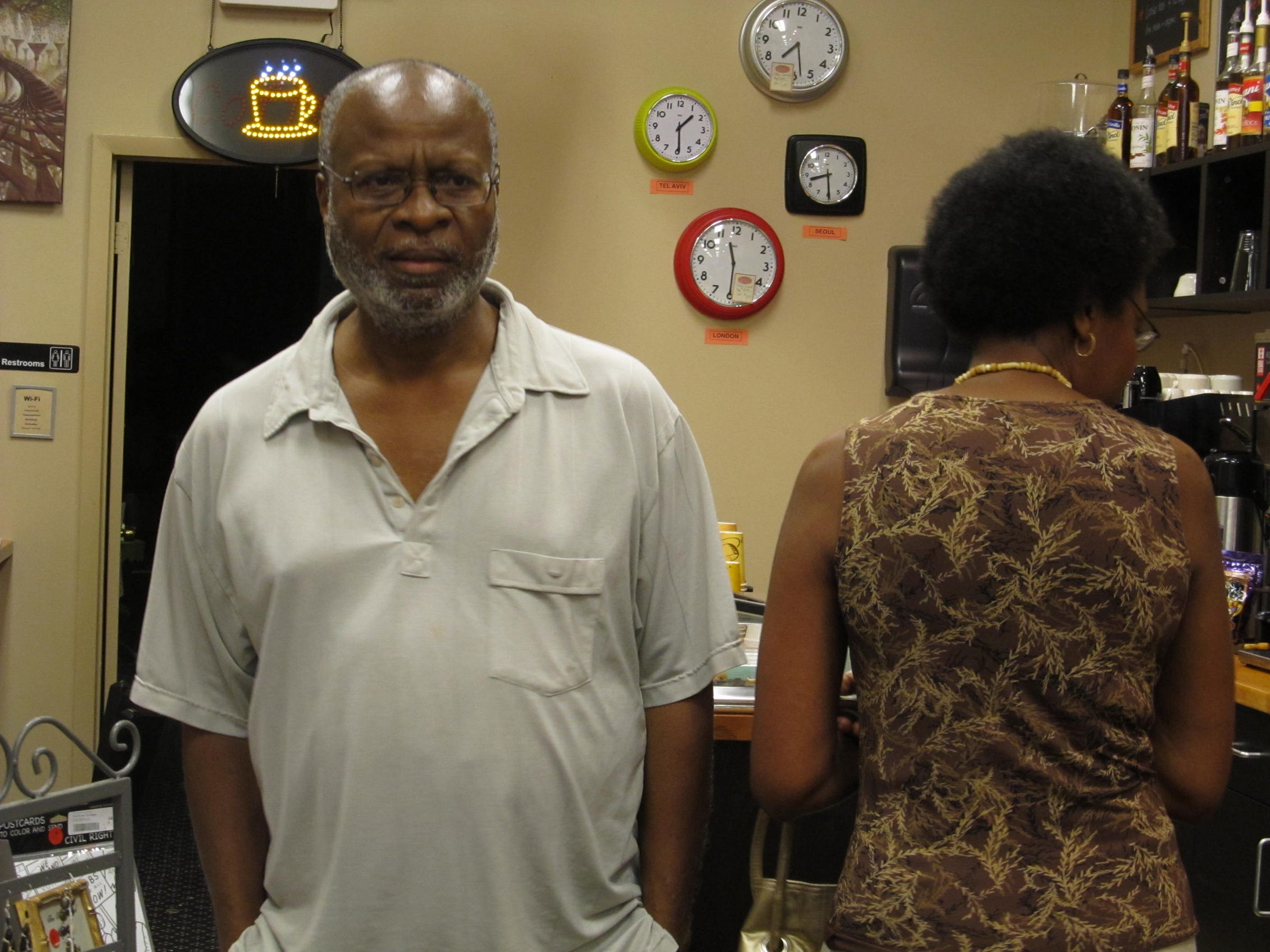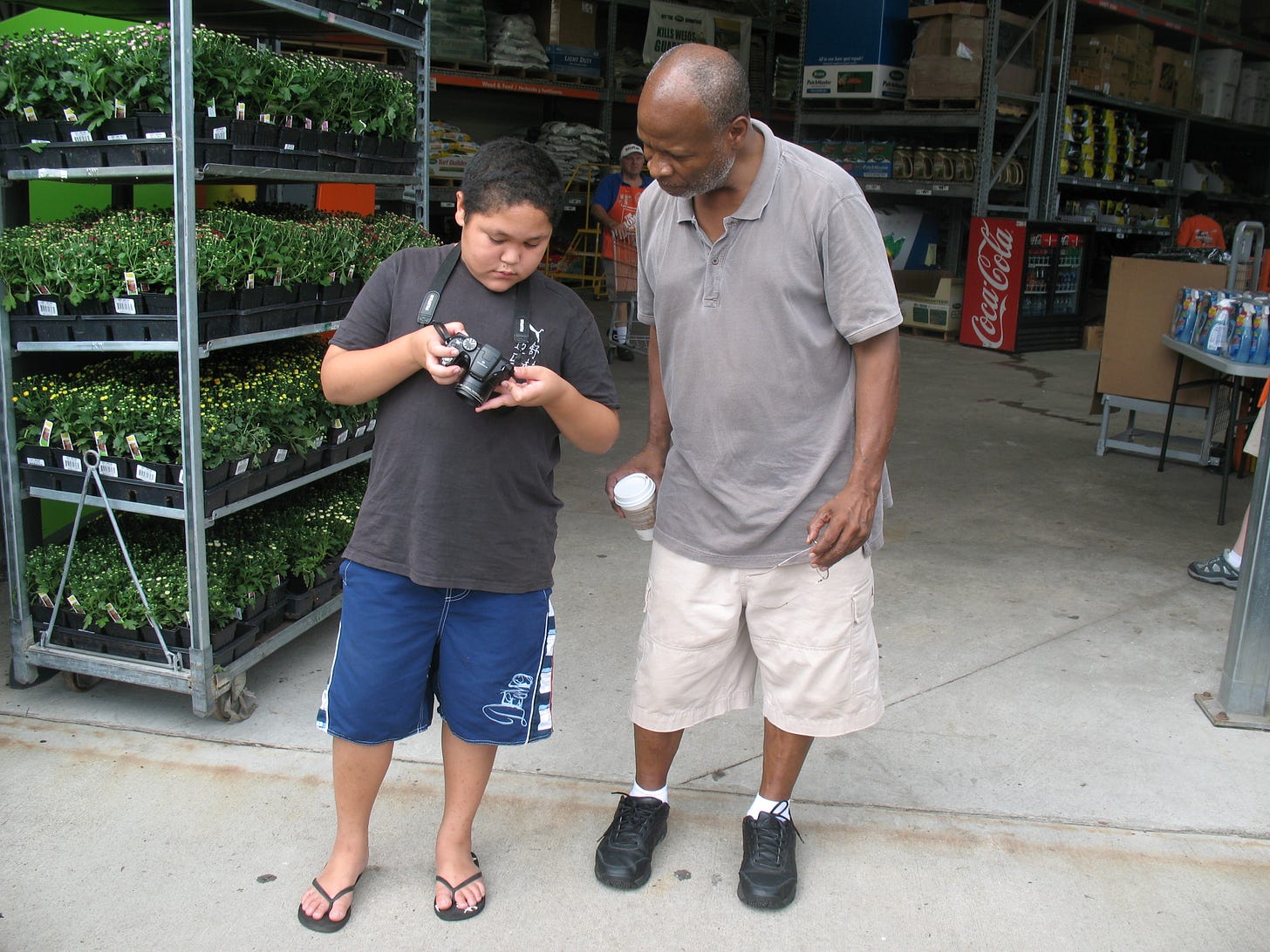“The first thing to go are your legs, then your reflexes, then your friends.” Willie Pep (prizefighter).
“Love is the last thing to go.” Kris Kristofferson (songwriter).
Only after his death can a man’s full story be pieced together, out of the love that lingers long after.
Some people die before their bodies, sometimes long before. My friend and comrade Troppy lived right up to the very end. Up to the day before his departure he was asking the publisher of Everybody’s magazine Herman Hall, about a manuscript Herman was to have written. As he had done for the previous half century, Troppy was helping someone to elevate himself.
His antidote for death was love. It was not rage but love that ensured he did not go gentle into that good night.
I have been fortunate or blessed to have met many remarkable men and women, giants in many fields, some in the sciences, some in cultural pursuits, others in social and political activism. But only a few amongst that broad group - I could count them on one hand - were possessed of what I call a nobility of spirit. That’s a quality transcending talents, abilities, knowledge, intelligence or any other gifts a man may possess.
The towering twentieth-century noble spirit is of course Nelson Mandela. Closer to home, those I knew personally included both Barry and Pauletta Chevannes from Jamaica and Roy Nehall from Trinidad. A fourth is a woman whose name I’ve forgotten; she was an Orisha priestess at a palais in Sangre Grande and in her presence I immediately felt sanctified. They were all people animated more than anything else by love.
To that short list I must now add Winthrop R. Holder, better known as Troppy.
Such men and women radiated something I can only describe as goodness. Their goodness first strikes you as kind of naivete, because it is not rational. It presupposes people are better than they really are. They can only think so highly of me, you feel, because they don’t know me and the mean pettiness that lays coiled in my heart like a snake. Goodness is based on faith, which is unreasoning.
Such men and women, however, are able to summon into existence qualities in you that you didn’t know you possessed - not because you didn’t see them but because they did not exist. Then, upon entering into their orbit you become a different person of different character.
One former student at Troppy's funeral said: He saw in me something that I didn’t see. That is how such an influence is perceived, but it’s misleading. Troppy saw what no one else did because it didn’t yet exist. It was only a potential, which is invisible. He looked at a seed and saw a mighty tree, he saw a future possibility, which his goodness conjured into reality.
The words real and reality refer to something that tangibly exists in the here and now. However, it is also related to the word realize, which means to bring something into existence. I realized that when my daughters were born, the first in 1993 and the second in 1998, and out of thin air blossomed in me a love that could not exist before because I was not previously capable.
Troppy’s nobility of spirit was manifest in his integrity, humility and generosity. To engage him was to become a better person. You automatically became less inconsistent, less egotistical, less selfish.
Integrity implies honesty, fairness and - often ignored - consistency, in which the various aspects of one’s character are integrated. Most of us possess one personality in front of our families and friends, another before our bosses, yet another with subordinates and another with people in authorrity. Sometimes those different personalities express divergent values and morals, But not Troppy. He was the same consistent man in all settings and seasons. He neither genuflected to the big sawatee nor patronized the lil peewat.
That struck me in 2010 when I visited New York with my younger daughter Saskia and her cousin William - two eleven-year olds. We stayed at the New Jersey suburban home of Troppy and his wife Yvonne. Although I’d knocked around quite a bit before with the kids back home, spending weekends in Toco and rainforest hikes in Moka, the Big Apple taught me that, being blessed with daughters, I didn’t know how to talk to boy children who weren’t interested in books. Troppy, despite his bibliophilia, knew. Somehow he got William to join his morning walks during which they’d have long conversations about God knows what.
That was my first inkling of his ability to engage anyone, whatever their level happened to be, simply by being curious and unassuming and without even a whiff of condescension. And he used his uncanny ability to encourage people of all ages to lift themselves to a higher stage, not only those he encountered as a teacher but everyone who came within his orbit. One Californian who he met at a Mighty Sparrow show started writing for the radical online magazine Troppy helped produce, Big Drum Nation, and flew in to attend his 70th birthday celebration in January 2024.
I only appreciated that at that birthday bash. The large room in a Caribbean restaurant was filled with his schoolmates, friends and relatives, but there were also former colleagues, students and proteges (who weren’t necessarily in his classes) and those latter were the ones who opened my eyes. One young man, who wasn’t even in his school, recalled how the students’ Society For Independent Thought changed his life. A woman who was in one of Troppy's classes forty years ago described how their Society For Social Analysis redirected her life goals from the traditional to one that more fulfilled her potential. That’s how a group of students and their teacher developed a method to counteract the psychic damage done by schooling.
The education system was designed during the industrial revolution to create unthinking cogs for employment in the system. It works by eroding imagination and creativity. Tests of human creativity have found genius levels in 98% of five-year-olds being reduced to 30% when they reach ten years, 12% at 15 years and 2% in adults. The precipitous decline was the product of the education system, which had trained them to follow instructions.
Students who fall or jump off that conveyor belt - mainly lower-class and minority children - are considered, and made to consider themselves, uneducable and maybe stupid. That process was the subject of another study, this time done with rats. There instructors were told some rats were stupid and others bright and that is what they became, although there were no initial differences between them. Even rats picked up and absorbed their teachers’ non-verbal cues and conformed to them. The rats classified as bright turned out so, and those considered stupid were made stupid.
Troppy avoided those self-fulfilling pitfalls with his openness to the students’ needs and ideas, harbouring not a negative opinion, despite on first encounter being appalled at their indiscipline and disrespect, which went way beyond what he had experienced during his own schooling in Trinidad.
Two teachers, one white, one black, said much the same thing - how Troppy inspired and encouraged - that is, gave courage to - his fellow workers in and out the staff room as he did his students. A white man with an enormous pot belly said in a thick working-class accent and a palpable sense of pride that, “I used to be a janitor at Mr. Holder’s school. He saw me writing and I’m just a lowly janitor but he put one of my poems in his book Classroom Calypso: Giving Voice To The Voiceless, I’m in there so I’m a writer.”
Troppy’s humility was not a Christian turn-the-other-cheek variety, which I find a bit suspect, nor was it a humorous self-deprecation. Rather, it was a radical humility, arising from his deep belief in the wisdom of ordinary people and especially those looked down upon, such as the students of an inner-city school and even its unskilled employees.
For instance, all of the remarkable innovations he introduced into his classrooms that had students (not just those in his classes) and staff members (not just teachers) surpassing their own dreams were culled from the students themselves.
When they were inactive in his classes he didn’t assume they were dull or uninterested; he assumed he was had missed something. So he studied them in the wild – i.e. the lunchroom and the halls where, instead of controlling their exuberance, he let freedom reign: “I was able to witness and better understand and appreciate students’ rich humor, vibrant laughter, lively discussions, even the way they engaged in word play while employing verbal repartees to celebrate their prowess in intellectual jostling.”
And so with all of his pedagogic innovations. They didn’t emerge from his intellectual insights or charismatic leadership but from his radical faith in the students’ knowledge and understanding of their own motivations.
His generosity was legendary. There is a vast number of people in the USA but also in Trinidad who should go on bended knee to thank his wife Yvonne Holder, for tolerating Troppy’s profligacy in buying books for friends, family and students who he thought would benefit from this or that tome.
For instance, he saw a young student rapping outside the school and asked him to be part of a project. The student wasn’t in Troppy’s class, and was not even interested in school. He informed Troppy, You’re not going to persuade me, I’m a Taurus - immovable. Troppy replied, Is that so? Well you know who was also a Taurus? Malcolm X. And he gave the student Malxolm X’s Autobiography, which changed his life.
That student spoke at Troppy’s funeral. “I feel more sad coming in here than I will be leaving,” he said. “I feel special but now I know that my story isn’t so special.”
Troppy’s love was not a generalized agape. To him every person was special and unique, and you felt that he felt so. And now that he has gone and you discover you were not the only special one, that doesn’t lessen his stature; rather it elevates him to heroic proportions. He touched a great many people and, as Nikki Giovanni in her poem “When I Die” sang:
and if ever i touched a life i hope that life knows
that i know that touching was and still is and will always
be the true
revolution.






This is a very nice tribute to Troppy. Sincere, pure, and so powerful!
Thank you Mr Johnson.
Accurate and insightful.
You knew the man!